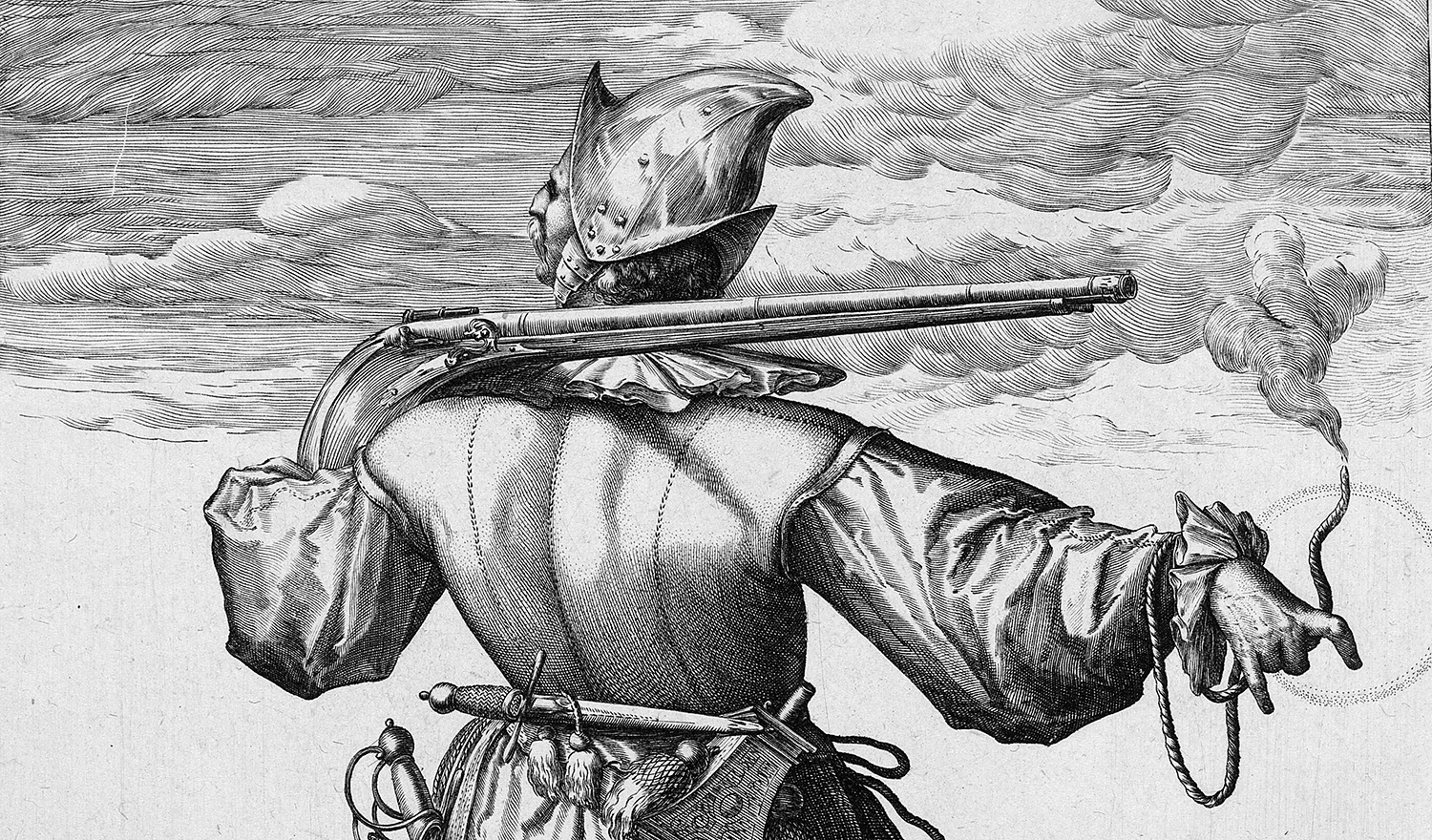bettered novels (55)

Detail from an engraving of a Helmeted Musketeer (1587) by Jacques de Gheyn II after Hendrik Goltzius
Is The Three Musketeers a great book? It is even a good book? It’s difficult to say. When I started reading it, I approached it as a potentially great book, as part of a foolish, half-hearted project, and found myself almost instantly depressed by it. Although its outlines of character types (there are only three four types of people…) are a notable feature, their lack of broader applicability or substance to ballast the somewhat superficial humor (they have nothing on Theophrastus or La Bruyère) meant that, for me at least, they did not linger.
That could, however, be the result of the constant clattering of the plot’s mechanics, a breathless juggernaut pulled pell-mell by the fell beast serialization. Never a dull moment. But the keen edge of even the most poignant moment becomes dull, if it is forever slashing against one’s attention. I found myself setting the book aside, forgetting about, for months on end. When I saw it, I felt not interest at what would come next or desire to know how the plot(s) would resolve, but resentment. The machinations were convoluted, the motivations improbable, and I was entirely out of sympathy with all of the characters, heroes and villains and everyone in between, from landlords to cardinals, from servants to queens. D’Artagnan’s horse, that sweet little (ugly old) buttercup (bouton d’or), seemed to me the only noteworthy character of the bunch.
* * *
The book improved markedly when I ceased to consider it a ‘great’ book, one that would have the potential to reveal greater depths on rereading. I read the last half of the book rapidly, often half-asleep, and it seemed, if not richer and more varied, at least more diverting. In that sort of rapid, distracted stupor, one scarcely notices that the inaptly named Constance appears to have had a complete personality transplant by the end of the book, going from canny minor insider to idiotic ingénue in need of rescue, or that the Cardinal, bane of the musketeers and perfect machiavel, has gone through multiple roles, including sinister demon, tiresome bureaucrat, disappointed lover, and mediocre manager of loose cannons. Is it a great book? No, ultimately I think not. But it is a perfectly fine book for its purpose – as entertainment, diversion, distraction. As I read, half-amused by the theatrical posturings of Milady, it seemed like the perfect book to read on vacation, when one is sunburnt or has caught an unseasonable cold or it is raining and one cannot go outside and there is nothing else to read, but one has a room or a comfortable chair to oneself and can sprawl as untidily as the plot, perhaps reading aloud choice bits to whoever happens to wander into the room. Yes, it is perhaps a great book for that.
